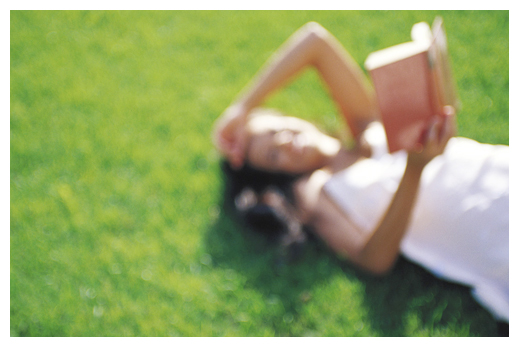
by guest blogger Maya Rodale, author of smart and sassy romance novels
The New York Times recently published the sort of article that made me snort and itch to pick up my pen in protest. The article? “Does Great Literature Make Us Better?” The answer from the author, Gregory Currie, is…maybe.
It suggests there is “scant evidence that reading great literature morally improves us,” and yet the few studies undertaken so far “don’t draw on serious literature but on short snatches of fiction.” It’s the distinction between “challenging” literature and “snatches of fiction” that vexes me. The idea that there is a right book with a right purpose worries me, too, because it seems to take the fun out of reading anything.
Allow me to preface the following by stating my literature-snob credentials: I have read Ulysses, War & Peace, and a load of hardcover classics for college credit (and so I could mention it in instances like this). I have read ALL of Proust’s In Search of Lost Time for pleasure, as well, and have been known to say it was one of the greatest reading experiences of my life. But I also read and write the sort of “trashy bodice-ripping” novels that are routinely excluded from any sort of “great” status (Here’s why). I happily read for both teams.
Currie examines whether literature might—or might not—have a morally improving effect on us. It’s a question that’s been around for a while, and in my research, I found many voices fearing the effects of an engaging novel. One example is Hester Chapone’s 1770 text Letters on the Improvement of the Mind: Addressed to a Young Lady, in which she warns against “reading novels which raise expectations of extraordinary adventures and cause readers to admire extravagant passions, and lead to unacceptable conduct.” In fact, at the time most novels were thought to be dangerous because they presented a grander vision of life to people whose knowledge of the world was limited to whomever or whatever was within walking distance. It all depends on one’s idea of “improving.” These readers knew more—but it may have led to unrest and a fight against the 18th-century status quo that didn’t allow for much for extraordinary adventures and extravagant passions for most people. The Powers That Be didn’t find having their status questioned very improving at all.
I was surprised that Currie, in his search for evidence of how reading affects us, didn’t mention the studies featured in an earlier New York Times article, Your Brain on Fiction, which featured the insights gleaned from neuroscience about what happens in our brains when we read. What scientists have learned: “The brain, it seems, does not make much of a distinction between reading about an experience and encountering it in real life; in each case, the same neurological regions are stimulated.” For instance, reading a word like cinnamon activates the portion of the brain that processes scent, in addition to the language processing areas. Imagine what this means about reading descriptions of hot sex in romance novels—or the sad end of a tragic novel, or the twisted motives of a villain, or a happy ending.
Similarly, there is evidence that “individuals who frequently read fiction seem to be better able to understand other people, empathize with them and see the world from their perspective.” Perhaps that makes readers better people, or maybe they’re just easier to get along with (so long as you don’t interrupt while they’re reading).
Literature—presumably good, bad, great, or trashy—lights up our brains in areas beyond just language processing. Perhaps reading is just a way to live a more experienced life. Given the cost of a used book or a library card, this might be the best return on investment of all time. Or maybe it’s just flipping fun.
We’re now officially heading into “beach reads” season, during which we are given permission to read books for fun that might not be categorized as “respectable” or “challenging fiction.” So far, I haven’t found any studies distinguishing between the effects—good or bad—of “high” and “low” literature. Thus, I say read what you enjoy, whether it’s good for you or not. Whether it’s on the beach, by the pool, during your commute, or on your back porch, or even—my sister’s favorite—on a blanket in the backyard. Let’s not worry if a book will make us better people and let’s ditch the distinctions between “fun” and “great” or “serious” or “trashy” and just remember the pleasure of getting lost in a damn good story.
 Maya Rodale is the author of multiple historical romance novels, as well as the nonfiction book Dangerous Books for Girls: The Bad Reputation of Romance Novels, Explained. She has a master’s degree from New York University and lives in Manhattan with her darling dog and a rogue of her own. Her latest book is Seducing the Single Lady, a historical romance based on Beyoncé songs. Learn more at mayarodale.com
Maya Rodale is the author of multiple historical romance novels, as well as the nonfiction book Dangerous Books for Girls: The Bad Reputation of Romance Novels, Explained. She has a master’s degree from New York University and lives in Manhattan with her darling dog and a rogue of her own. Her latest book is Seducing the Single Lady, a historical romance based on Beyoncé songs. Learn more at mayarodale.com




There is an important twofold message here for teachers and parents:
1. Be aware of what materials children are reading
2. Do not limit the genre, i.e. comic books, picture books, etc.
Excellent point, Susan! When my schoolmates complained that school mandated reading was boring, I suggested they should try something more fun.
Thanks for this enjoyable article ‘to read.’ I love to read and always have. Now that I’m retired, I spend even more time reading. All kinds of books, and while I love autobiographies, and biographies about all kinds of people, my greatest happiness is when I am reading a novel, both funny ones and murder mysteries, but especially when the people in the novels are so real, so wonderfully deep and loving and down to earth that I end up feeling like they are some of my best friends! I’ve decided that my real vocation in life is to be Retired and to Read!! Thanks again for your insights.
Cheers to you, Maya!! I agree completely, I don’t care what the genre is, if you are getting enjoyment out of it, read it, and in my case – read it again if you really loved it!
Great article! Wonderful comments! My mom allowed me to select books from the ‘adult’ section of the library at age 8, after she taught me to read at age 2. What a joy reading has been over the many years since! From hiding under the covers with my flashlight and a copy of Nabokov’s ‘Lolita’ and all of Ian Fleming’s James Bond novels, to now, savoring the luxury of not worrying about my dad catching me reading something inappropriate for kids. The point is….READ. It opens your world to imagination and possibilities!!! I am amazed by how many people do not. What a shame for them!